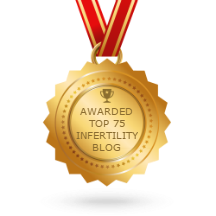How Does PCOS Affect Fertility?
PCOS, or Polycystic Ovary Syndrome, is a hormonal condition affecting 10% of women in their reproductive age. It is alarming, that 70% of PCOS cases go undiagnosed due to a lack of awareness about the condition. PCOS can tend to interfere in your life, in ways you might not even know about. But FRET NOT! Let’s answer some common questions about PCOS so that you can kiss those doubts away.
What is PCOS? What are its symptoms?
PCOS is an increase in the male hormones produced in a woman’s body, as well as having irregular periods. In a typical case of PCOS, small cysts, or follicles grow inside the ovaries, each containing an immature egg. The eggs in these follicles never mature, so ovulation is disrupted. This, coupled with excess male hormones, affects the function of the ovaries. Women with PCOS experience delayed periods, and in some cases, there is no period at all. Some of the common symptoms of PCOS are irregular periods, excess facial and body hair, acne, weight gain, as well as male pattern baldness.
Why does PCOS occur? What effects does it have on women?
While there is no concrete answer to what causes PCOS, there are a few findings that link certain features to PCOS. One of them is genes. Some studies have found a link between genetics and PCOS. Insulin resistance is another factor that can cause PCOS. Insulin resistance causes excess insulin to be produced in the body, which in turn causes the ovaries to secrete more male hormones. This increases the risk of diabetes, as well as PCOS. PCOS can cause some adverse effects on the female body, which is why it is vital to get it diagnosed. Some of these effects include low metabolism, obesity, sleep apnea, endometrial cancer, and depression. However, one of the main questions that women have worldwide is ‘Does PCOS Affect a Woman’s Ability to Conceive?’ The answer is, Yes. PCOS prevents the regular release of the egg, which hampers fertilization. In PCOS infertility rate is high, with almost 75% of women with PCOS having problems with conception.
How is PCOS treated, to boost infertility?
Some of the most common ways to treat PCOS include birth control pills to regulate the cycle, Metformin to regulate insulin, Clomiphene to increase fertility, and in some cases, surgery. However, it is important to note that these drugs can also have side effects, which is why it is best to let a doctor decide the best mode of treatment for you. Some efforts you can make at home to aid in PCOS treatment are, following a healthy diet and a regular exercise routine. Obesity remains the number 1 reason for the PCOS infertility rate, which is why it is necessary to target that first. Losing even 5-10% of body weight can boost fertility in PCOS patients.
Why should I choose Shrikhande IVF to treat PCOS and infertility?
Shrikhande IVF is a leading fertility treatment Centre in Nagpur, which has had great IVF success rates in women with PCOS. Fertility treatments can sometimes be tough for the body to handle and go wrong. When it comes to IVF in PCOS patients, the overstimulation of the ovaries to produce more eggs can result in dangerous effects for the body. Shrikhande IVF recognizes these risks and uses methods that aim at avoiding such problems. Rather than stimulating the ovaries for 4-5 weeks, the ovaries are only stimulated for 10-11 days. This ensures that there is no hyperstimulation or overstimulation of the ovaries.
Shrikhande IVF can proudly say that there have been zero cases of their method going wrong. PCOS and infertility is a tricky situation, but it is possible for a woman to conceive, even with PCOS. Dr. Laxmi Shrikhande at Shrikhande IVF is the leading specialist for IVF Treatments. Get in touch to book an appointment.





 (+91) 880 557 7600
(+91) 880 557 7600
 Abhyankar Road, Dhantoli, NAGPUR-12
Abhyankar Road, Dhantoli, NAGPUR-12






Leave a Reply